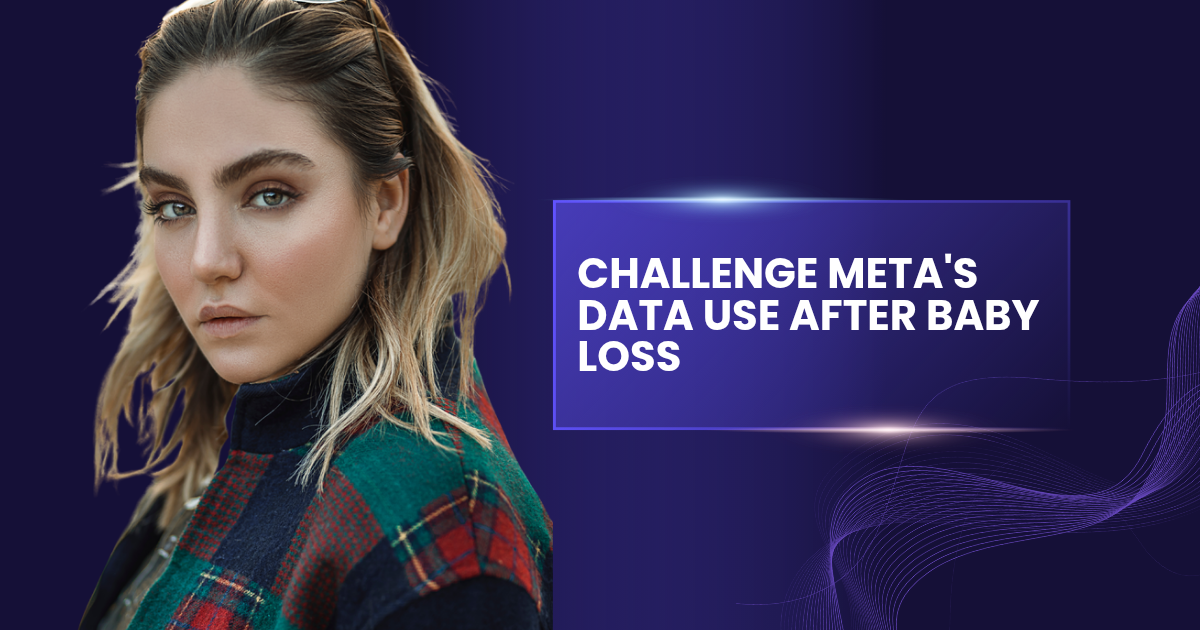Meta’s Algorithm Failure: Targeted Ads Torment Woman After Miscarriage
When women discover they’re pregnant, their search history quickly fills with key questions like: “What does my baby look like at six weeks?” and “When should I book my first midwife appointment?”
For Sammi Claxon, typing these queries into search engines was no different. Immediately, advertising algorithms—operated by platforms like Meta (Facebook/Instagram)—picked up on her presumed pregnancy status, leading to a flood of highly targeted ads for maternity and baby products.
The heartbreaking failure of the AI system occurred when Sammi experienced a miscarriage. Despite the loss, the algorithms continued their relentless targeting, displaying the painful, irrelevant ads that served as a cruel reminder of the baby she had lost. This tragic incident highlights the severe lack of algorithm sensitivity in digital advertising during periods of personal grief and pregnancy loss.
Personal Tragedy Meets Algorithmic Failure: The Cost of Targeted Ads
Sammi Claxon’s devastating experience continued after her first loss in 2021, enduring four more miscarriages over the next three years. She vividly described the profound emotional impact: “As soon as you get that positive test, you feel like a mother… and when that’s stripped away from you, it’s awful.”
Isolated by feelings of shame and embarrassment, Sammi turned to social media for support. However, her feed was tragically “littered” with baby-related adverts, serving as a constant, devastating reminder of her losses. To preserve her mental health, Sammi, from Blidworth, Nottinghamshire, ultimately had to quit social media entirely.
The Legal Challenge and Precedent
Sammi’s ordeal is not unique. Like her, Tanya O’Carroll was hit with unwanted targeted adverts from Facebook (now Meta) in 2017 immediately after she discovered she was pregnant, before she had even told private family members. She found the digital intrusion “unnerving.”
Tanya decided to take action, filing a landmark lawsuit arguing that Meta’s targeted advertising system qualified as direct marketing under UK law, thereby giving individuals the right to object to its use. In a significant victory, Meta agreed in March to stop targeting adverts at an individual user based on their personal data. This precedent offers a ray of hope for others, challenging the immense power of social media algorithms over individual privacy and well-being.
Legal Showdown: The Fight Against Meta’s ‘Creepy, Invasive Ads’
Meta initially defended its ad practices by arguing that its systems only targeted groups of a minimum of 100 people, not individuals, and thus did not constitute direct marketing. However, the UK’s Information Commissioner’s Office (ICO) publicly disagreed with this assessment.
Following her lawsuit, Tanya O’Carroll achieved a critical personal victory. She explained that Meta agreed to stop using her personal data for direct marketing, which effectively allowed her to “turn off all the creepy, invasive, targeted ads on Facebook.” As a result, she and her legal team believe she is now the only one among the UK’s over 50 million Facebook users who is not targeted with personalized adverts.
Tanya’s success is fueling a larger movement: over 10,000 people have now raised formal objections to Meta regarding their data use, suggesting the potential for further lawsuits and a major shift in digital privacy.
Rhiannon Lawson’s Tragic Ordeal
Despite Tanya’s landmark case, the systems remain unchanged for countless women still being “bombarded” with painful pregnancy-related advertising. The experience of Rhiannon Lawson, from Suffolk, tragically illustrates this failure.
After seeing the two blue lines on her test, Rhiannon and her partner Mike were “full of hope,” naming their first growing baby “Fantus.” But the joy was short-lived: Rhiannon miscarried at eight weeks.
Later, in October, she was pregnant again. The couple named their baby boy Hudson. Devastatingly, a 20-week scan revealed the baby had a severe heart condition, and Hudson was stillborn at 22 weeks in March.
Seeking support and comfort online, Rhiannon and Mike were relentlessly confronted with reminders of their loss. Rhiannon noted: “Pregnancy apps still send milestone notifications. Baby stores offer discounts… Adverts for prams and newborn essentials pop up.” She summarized the core problem of algorithmic insensitivity:
“Technology doesn’t understand loss and in moments when we least expect it, it reminds us with devastating precision of what we no longer have.”
This tragic account underscores the high stakes of the ongoing debate: are Meta’s algorithms capable of displaying the necessary empathy and sensitivity to protect grieving users?
Consent or Pay’
In late September, Meta announced a new approach to placate privacy concerns: a paid subscription service in the UK, charging users £2.99 a month to stop seeing advertisements. This model, known as “consent or pay,” allows digital platforms to generate revenue from users who choose not to be tracked for ad targeting.
However, victims of the platform’s algorithmic failures say the policy is insulting. Rhiannon Lawson criticized the move, stating: “If they [Meta] cared about their users, charging them not to be shown upsetting content seams unreasonable.”
Hayley Dawe’s Devastating Loss and Algorithmic Insensitivity
The tragic story of Hayley Dawe further exposes the lack of algorithm sensitivity. After three rounds of unsuccessful IVF, Hayley and her partner were overjoyed to be expecting twins. They immediately searched online for advice and joined twin support groups.
Their excitement turned to utter devastation after a scan confirmed one twin had died. Days later, her second twin also had no heartbeat. “I broke,” Hayley recalls.
Hayley desperately sought support in online forums, but her feed was immediately flooded with painful targeted ads for maternity wear, pregnancy pillows, and tracker apps. Though coming off social media was not an option (as it was her primary source of support), the ads undermined her healing.
Failure of Ad Controls and Whistleblower Confirmation
Hayley tried to use Meta’s own controls, which allow users to block specific ad topics like “parenting.” She was shocked that “pregnancy” was not a separate category. Worse, switching off the broad “parenting” option made no difference, with pregnancy ads still appearing, even after she marked them as spam.
This failure of Meta’s controls is no surprise to former senior manager Arturo Bejar. He testified to US Congress in 2023 about safety issues, confirming that the “mark as spam [button] was not connected to anything” and that internal help reports were sometimes “getting thrown out.”
Bejar accused Meta of prioritizing profits over user safety, stating: “They love saying that they care, but they just care about getting more users on their platforms, so that they can make more money. I think it’s inexcusable. It’s inhumane.”
Meta’s Official Response
In response to these deeply personal accounts, a Meta spokesperson acknowledged the issue: “We take these concerns seriously and continue to improve the sensitivity and accuracy of how ads are delivered… Our systems are designed to share the most relevant and useful content, but they aren’t perfect and some ads may occasionally appear inconsiderate or out of place.”
some ads may occasionally appear inconsiderate or out of place.”The company concluded by encouraging people to use the existing—and demonstrably ineffective—opt-out categories.
Personal Testimony: The Trauma of Targeted Ads
The issue of Meta’s targeted advertising is brought into sharp, painful focus through the personal testimony of the article’s author, who bravely shares her experience of stillbirth and subsequent pregnancy loss.
”It Reminds Me of Everything I Lost”
The author identifies as part of the “parenting club that no-one wants to be part of,” detailing the devastating loss of her daughter, Liliana, on April 18, 2020. Liliana’s heart stopped two days after her due date, following a full 40-week pregnancy. The author recalls those briThe author is now a mother to two living children, alongside the three babies held in her heart (Liliana and two subsequent miscarriages).
ef, agonizing hours spent with Liliana, trying to “memorise her face, her weight in my arms,” and notes her struggle with the word “loss,” feeling she didn’t lose her daughter but rather faced an enduring absence.
The tragic reality of algorithmic insensitivity is clear when the author is at her “most vulnerable.” She explains that when scouring social media for support, she is constantly “slapped in the face by targeted ads of babies giggling, pregnancy bumps blooming, happy families,” which serve as a traumatic reminder of everything she has lost.







